Description
ABSTRACT
The Employer’s Unshifting Duty to Provide Work: Nigerian Law through the Eyes of Chinonye Amanze v Union Bank
Gladys Ochu Eyongndi* and John Ifeanyi Ebokpo**
One of the duties of the employer is to provide work for the employee. However, so long as the employee is remunerated, failure to provide work is not a breach save where continuous work is essential to the employee’s career. Over the years, it has become fashionable for employers to give employees targets that they must meet to attract clients/business as a prerequisite for continuity of employment, especially in the banking sector, thereby saddling the employee with the duty to provide work. This paper adopts doctrinal methodology, relying on primary and secondary data like the 1999 Constitution, statutes, case laws, journal articles, and textbooks in reviewing the Court of Appeal decision in Amanze v Union Bank Plc. where the Court held that it is the duty of the employer to provide work always; the practice of financial institutions saddling employees with business attraction targets as a prerequisite for continuous employment is an abdication of that duty and wrongly placing same on the employee; same is an unfair labour practice and therefore prohibited. It examines the impact of this decision on Nigeria’s employment relations, arguing that; it is a welcomed development. It found that the decision faces the challenge of implementation due to a high level of unemployment, lack of regulatory framework and unawareness. It recommends that stakeholders should create awareness of the prohibition and ensure employers’ compliance. The government should also create enabling environment for gainful employment towards curtailing this practice fuelled by unemployment.
Keywords: Employer, Employee, Labour, NICN, Work
INTRODUCTION
At common law, upon the creation of an employer-employee relationship, the parties acquire rights and obligations towards each other.1 One of the duties the employer owes the employee is to provide work2 and this common duty has been given statutory fortification by section 17 of the Labour Act.3 However, as long as the employer remunerates the employee (as required), the employee cannot complain that the employer has failed and/or refused to provide work as such failure or refusal does not amount to a breach of the duty save continuous work, is required for career progression of the employee.4 Where this is the case, then remuneration will not absolve the employer from the duty to provide work.5 Like the Northern star, this duty is constant and unshifting on the employer; hence,
* LL.B (Hons), BL. Legal Officer Bowen University, Iwo Osun State. Email: gl******@***oo.com, gl*************@*******du.ng Phone Number: +2348173738891.
** LL.B (Hons) UNICAL, BL, LL.M (In View, NSUK) PNM, FCIAN, ACCI. Principal Partner, Ebokpo, Adedayo & Co., (EAC Legal) Abuja, Email: je*****@******al.com
- Chioma K Agomo, Nigerian Employment and Labour Relations Law and Practice (Concept Publications Ltd 2011) 117.
- Collier v Sunday Referees Publishing Company [1941] 2 KB 647.
- Labour Act Cap L1 LFN 2004, s 17.
- Herbert Clayton & Jack Waller Ltd. v Oliver [1930] AC 200; Marbe v George Edwards (Daly’s Theatre) [1928] KB 269.
- Langton v Amalgamated Union of Engineering Workers [1974] 1 All ER 980.

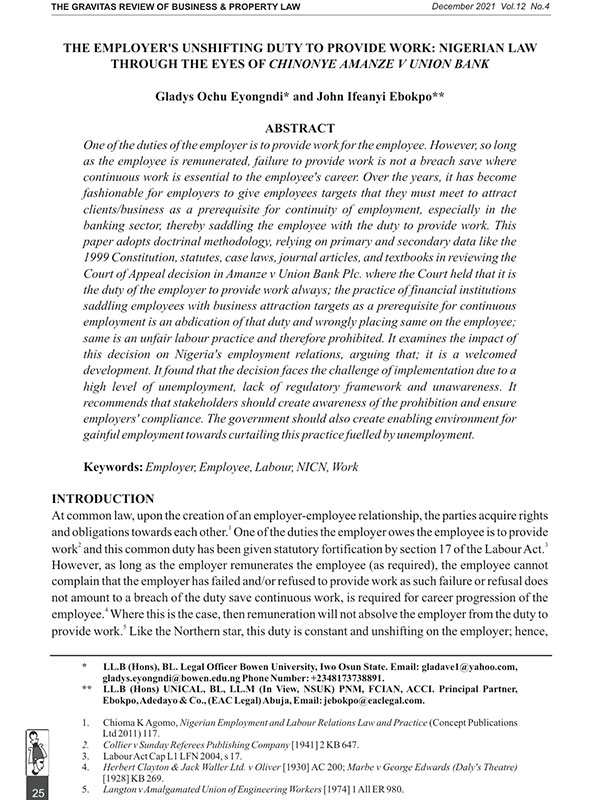
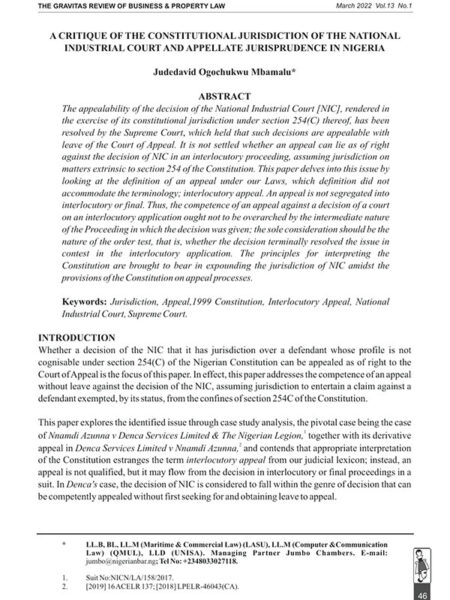
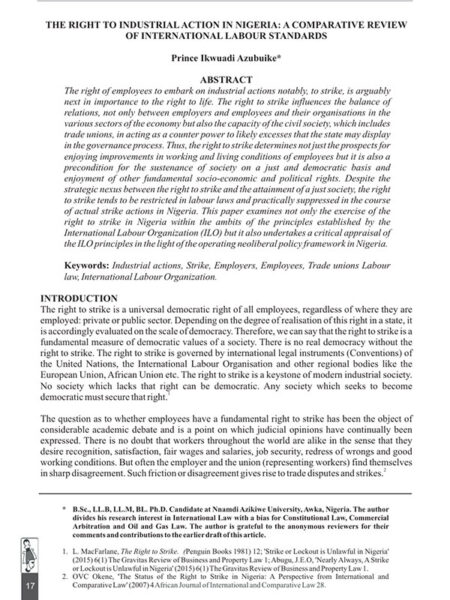
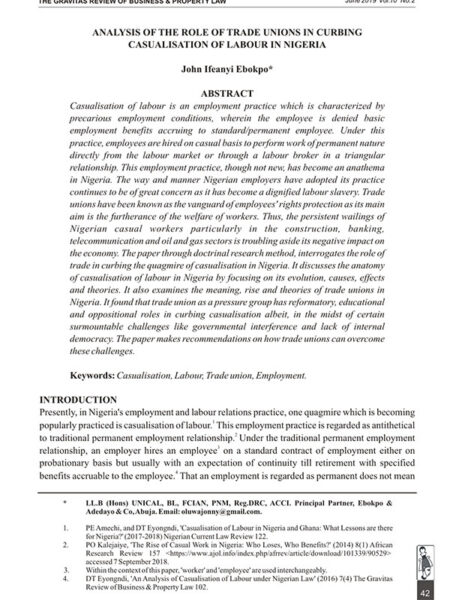
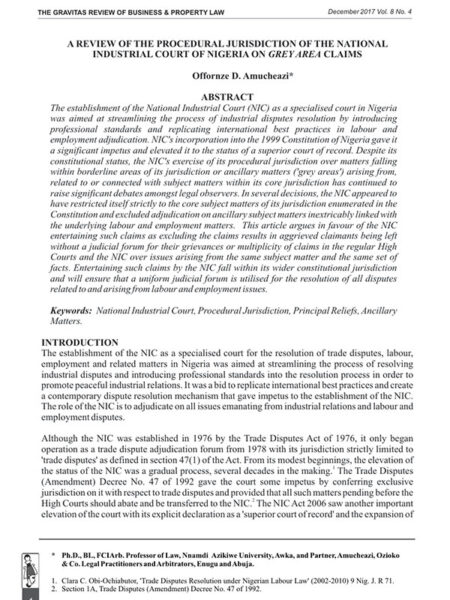


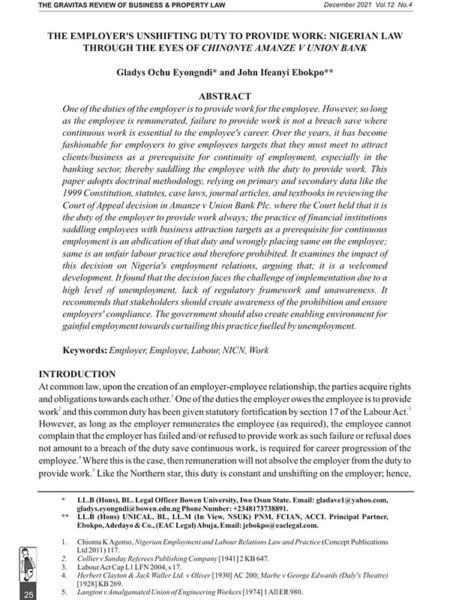
Reviews
There are no reviews yet.